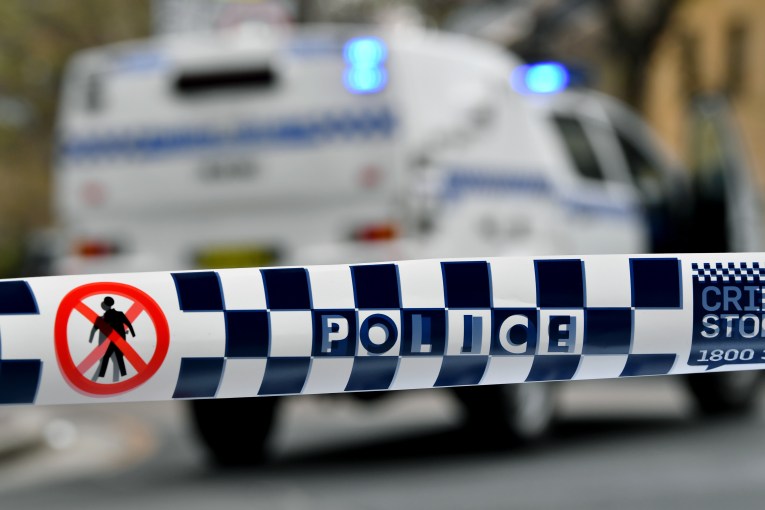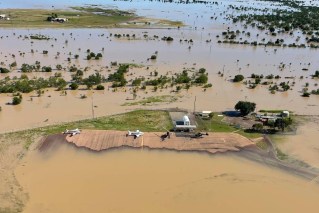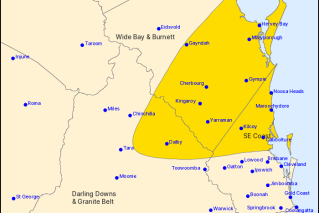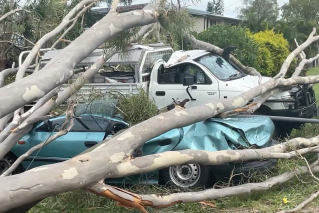Sharks ‘bigger and fatter’ and numbers ‘out of control’ in north Queensland, fisher says
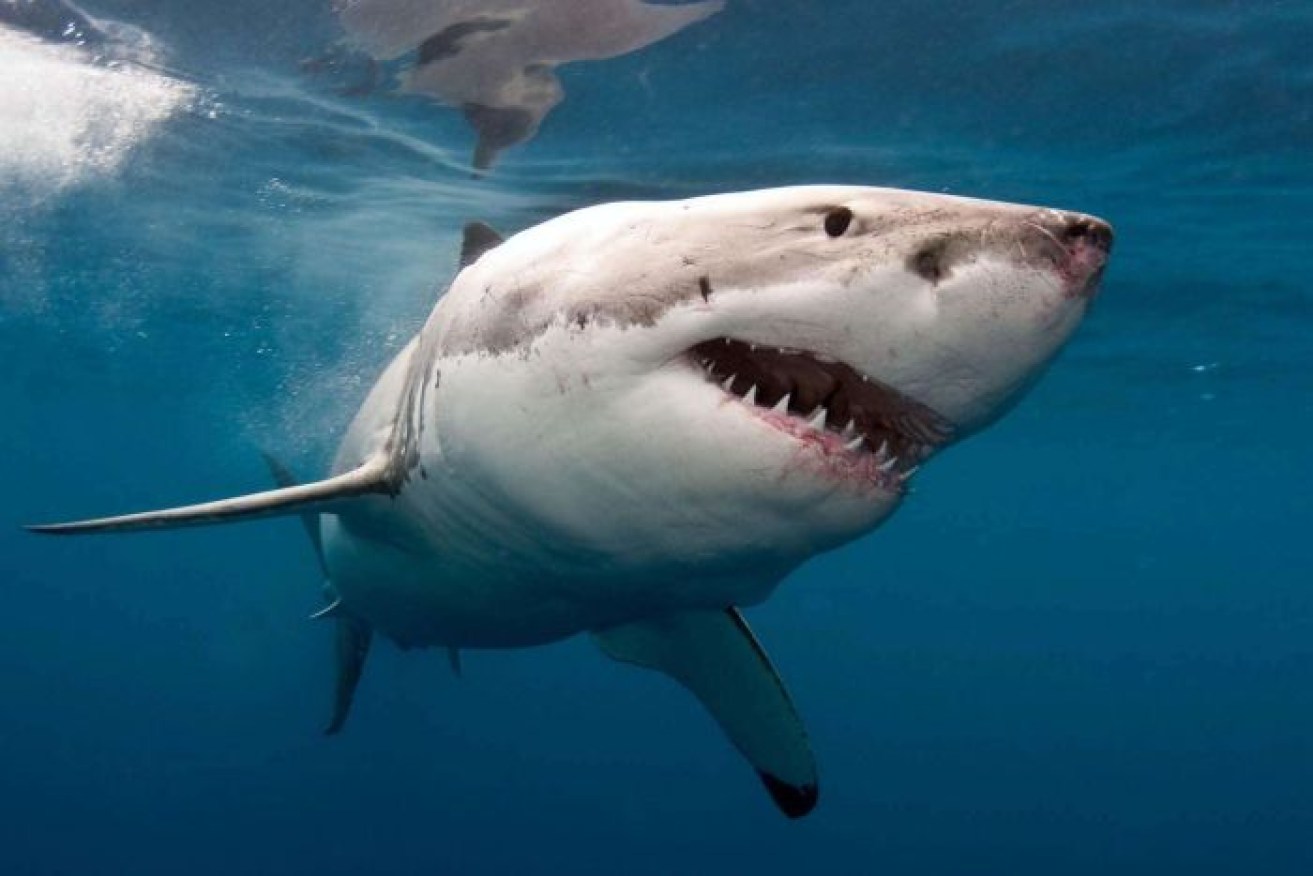
Mr Batch says there is no easy solution to the burgeoning shark population. Photo: AAP
One of Queensland’s last remaining commercial shark fishermen warns shark numbers in north Queensland are “out of control” and he is surprised there have not been far more people mauled by the animals.
Melbourne tourist Daniel Christidis, 33, died in hospital on Monday night after being attacked while paddleboarding and swimming at Cid Harbour in the Whitsundays.
It was the third shark attack at Cid Harbour since September.
Authorities, marine experts, and industry officials are meeting in the Whitsundays on Friday to investigate what has caused a spate of shark attacks in the region.
The Whitsunday Mayor and Queensland’s ministers tor tourism and fisheries have called the meeting to come up with a strategy to prevent future attacks.

Daniel Christidis was “a fantastic doctor” to his patients, Professor O’Connell said. Photo: Twitter
Katter’s Australian Party (KAP) North Queensland MP Rob Katter said on Thursday sharks were no different from pigs, kangaroos and wild horses and an increase in their numbers should be dealt with by culling them.
Mr Katter joined the LNP’s federal Hinkler MP Keith Pitt in calling for a shark cull, despite shark researchers dismissing the move as ineffective and the Queensland Government ruling out the placement of permanent drum lines in the Whitsundays.
Sharks ‘just got bigger and fatter’
Bruce Batch has worked for the same commercial fishery for almost 48 years and fishes in waters from Townsville to Princess Charlotte Bay in far north Queensland.
He said environmental campaigns and a halving in commercial catch numbers by a former federal Labor government had driven a spike in the state’s shark population.
“We used to have 300-odd trawlers on the east coast and every night those trawlers would go to work and those packs of sharks would follow those trawlers,” he said.
“What’s happened is the trawler industry’s taken a massive downturn, but those sharks didn’t go away — they just got bigger and fatter.”
Mr Batch said there would be a big jump in the number of people attacked along the coast.
“What surprises me is the fact that there isn’t more [attacks] — when you actually talk to any commercial fishermen, these animals are now getting larger and larger by the year and they’re educated to follow boats,” he said.
“They know if they follow a boat they’re going to get a feed.”
Mr Batch said there used to be a shark take of roughly 1200 tonnes in Queensland but that was halved by the former federal Labor environment minister Peter Garrett.
“Those sharks have had now 10 to 15 years to grow,” he said.
Mr Batch said the issue had also been compounded by the number of net-free and green zones in Queensland waters.
“They sound like a good idea but they themselves were keeping a lot of the bull sharks in control,” he said.
“Every river and estuary along the coast is now nearly shut to commercial fishing and that has allowed those bull sharks to breed and increase and grow, to a stage where they now leave the estuaries and are going out into the wild and becoming a big problem.”

Drumlines were rolled out after shark attacks on Justine Barwick, 46, and Hannah Papps, 12, last month. Photo: AAP
Mr Batch said there was no easy solution to the burgeoning shark population.
“I don’t know what the answer is, but our line fishery is now having its own set of problems, with these animals that follow the dories around and just take fish off fishing lines,” he said.
“Talk to any avid recreational fishermen in north Queensland and they’ll tell you there’s a massive shark problem.
“Some of those guys just leave grounds, but by the time they get to the next one, those packs of animals are pretty smart and they know where the outboards are going or where the engines are going and they just follow them.”
Shark numbers ‘out of control’
He said environmental groups campaigned against what he described as a very sustainable fishery industry, and persuaded major supermarkets to remove shark meat, known as flake, from shelves.
“All the pensioners and older people used to be able to afford a feed of fish but they can’t afford that $60 to $70 per kilo stuff now,” he said.
“This was a very sustainable industry until WWF [World Wildlife Fund] got involved in it and there are very very few people now who use flake, despite the fact there’s nothing wrong with it.
“We used to have a 1,200-tonne take a year in Queensland and that now is probably down to less than 100 tonnes and those sharks are still getting caught but you haven’t got a market for them so you can’t use them — you just discard them.”
Mr Batch said everyone attending Friday’s round table meeting at Airlie Beach needed to go out with fishermen who were regularly in the area to see the shark numbers for themselves.
“When you’re out here on the water and you see the amount of sharks and the amount of large sharks, it’s out of control and I don’t know what the answer is,” he said.
“Talk to the guys that make their living out on the water — they’ve certainly got a different concept of what’s going on than the guys who are sitting on their tiny seats in offices.”

A great white caught, tagged and released on the NSW far north coast in March. Photo: NSW Department of Primary Industries.
People need to learn better co-exist with sharks
Marine biologist Richard Fitzpatrick said the first step to finding a solution was to research the environment and sharks involved.
He said people needed to learn to better co-exist with the predators, as they have with other dangerous animals.
“In north Queensland we live with the world’s most venomous animal — the box jellyfish — we’ve adapted our human behaviour to work around what we have learnt about the seasonality of the animals,” Mr Fitzpatrick said.
“With the sharks, we need that basic biology to know when and where they occur, so then we can have appropriate management.”
He said funding was needed to research the types of sharks involved.
“I hope that we put a scientific process forward, because we need to find the culprit, and where and when they are occurring,” he said.
“Once we figure out which species they are — are they resident in those areas — once we can get some base information done, then agencies can come up with appropriate management regimes.”
